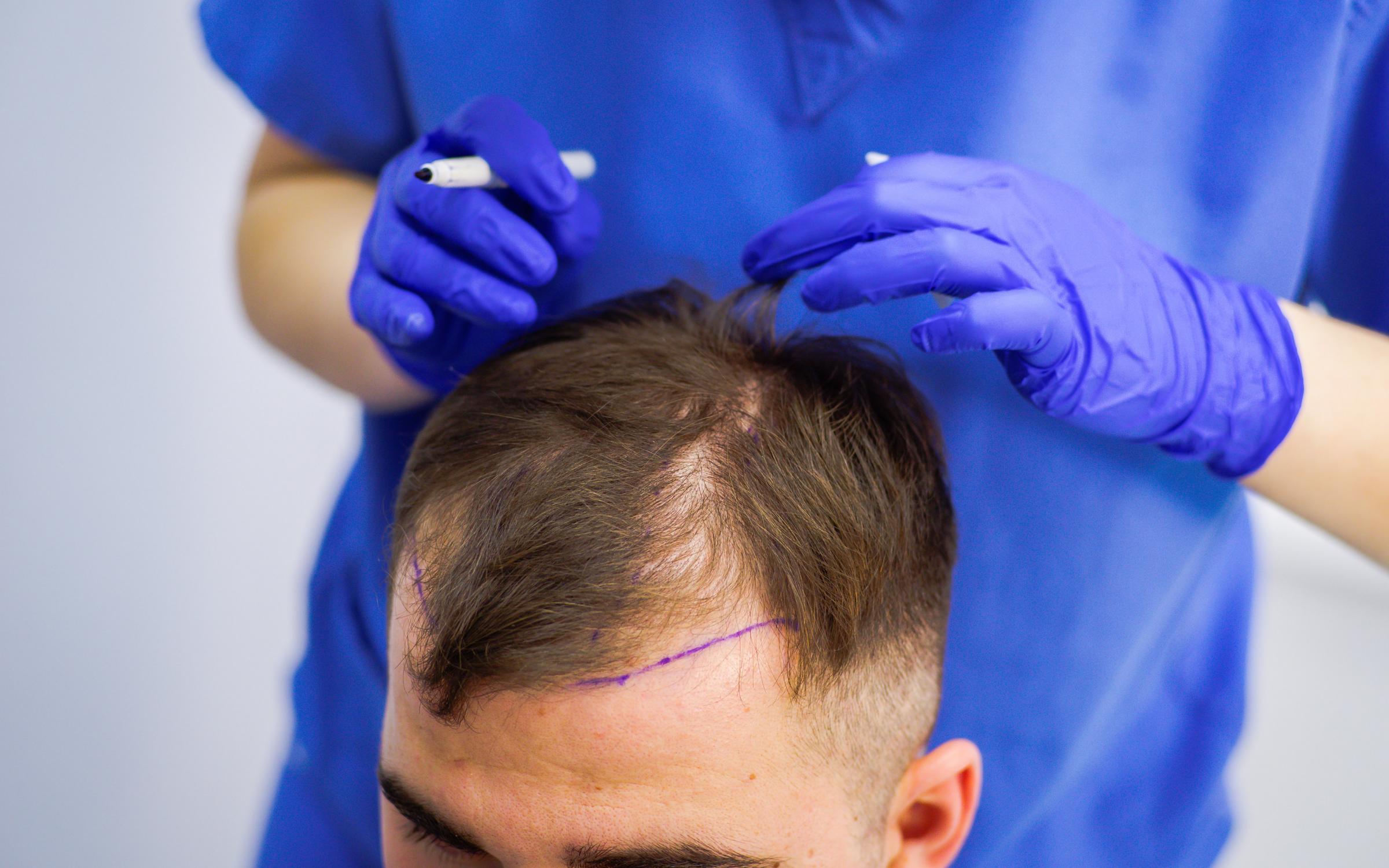Choosing the right hair transplant in Riyadh is a pivotal decision that will directly impact the success, natural appearance, and overall satisfaction with your hair restoration journey. With numerous clinics offering these services, it's essential to approach the selection process with diligence and a clear understanding of what constitutes a top-tier facility.

1. Surgeon's Qualifications and Experience:
The surgeon is the cornerstone of a successful hair transplant. Their skill, artistic vision, and experience are paramount.
- Board Certification: Look for surgeons certified by reputable boards in plastic surgery, dermatology, or specifically in hair restoration (e.g., American Board of Hair Restoration Surgery - ABHRS). This indicates a high level of specialized training and adherence to strict standards.
- Years of Experience and Volume of Procedures: Inquire about the surgeon's experience specifically with hair transplants. How many years have they been performing these procedures? How many hair transplants do they perform annually? A high volume of successful cases often correlates with refined skills.
- Specialization: Does the surgeon specialize primarily in hair restoration, or is it one of many procedures they offer? Specialization often leads to greater expertise.
- Artistic Eye: Hair transplantation is as much an art as it is a science. The surgeon's ability to design a natural-looking hairline that complements your facial features is crucial. Ask to see their portfolio of before-and-after photos, paying close attention to hairline design and density.
2. Techniques Offered and Technology Used:
Modern hair restoration employs advanced techniques that significantly impact results and recovery.
- FUE (Follicular Unit Extraction) and DHI (Direct Hair Implantation): These are the most commonly performed and preferred techniques for their minimally invasive nature and natural results. Ensure the clinic is proficient in these methods.
- Advanced Equipment: Reputable clinics invest in state-of-the-art instruments, such as high-precision micro-punches, specialized implanter pens (for DHI), and advanced lighting/magnification systems. Some might even utilize robotic systems (like ARTAS) for precision.
- Graft Handling: Inquire about how grafts are handled after extraction to ensure their viability. Proper storage solutions and minimal time out of the body are critical for graft survival.
3. Clinic Reputation and Patient Reviews:
A clinic's reputation speaks volumes about its quality of care and patient satisfaction.
- Online Reviews: Check independent review platforms (Google reviews, specialized medical review sites) for consistent feedback. Look for comments on the surgeon's professionalism, staff attentiveness, clinic hygiene, and most importantly, the naturalness and success of results.
- Before-and-After Photos: Demand to see a comprehensive gallery of previous patients' results. These should ideally include various hair loss patterns and show different stages of growth (e.g., 6 months, 12 months, 18 months post-op). Pay attention to patients with similar hair characteristics to yours.
- Testimonials and References: While direct contact with previous patients might be limited for privacy, some clinics may offer anonymized testimonials or case studies.
4. Comprehensive Consultation and Communication:
The initial consultation is your opportunity to assess the clinic and surgeon.
- Thorough Assessment: A good clinic will conduct a detailed examination of your scalp, assess your hair loss pattern, and determine the quality and quantity of your donor hair. They should also inquire about your medical history and lifestyle.
- Realistic Expectations: The surgeon should provide a realistic assessment of what can be achieved, including the number of grafts needed, expected density, and recovery timeline. Be wary of clinics that promise unrealistic or guaranteed results.
- Clear Communication: The medical team should clearly explain the procedure, the chosen technique, potential risks, post-operative care, and expected outcomes. All your questions should be answered patiently and thoroughly.
- Who Performs the Procedure? Clarify who will be performing each stage of the procedure – the surgeon, technicians, or both. Ideally, the critical steps like hairline design, donor area assessment, and recipient site creation should be done by the surgeon.
5. Cost and Transparency:
While cost shouldn't be the sole deciding factor, understanding the financial aspect is important.
- Detailed Quote: Request a clear, itemized quote that includes the cost of the procedure, consultations, medications, and any follow-up appointments.
- No Hidden Fees: Ensure there are no hidden charges.
- Value vs. Price: Be cautious of clinics offering significantly lower prices, as this might compromise quality, hygiene, or surgeon experience. Prioritize value for money, which means excellent results and safety for a reasonable price.
6. Clinic Environment and Post-Operative Care:
- Hygiene and Accreditation: The clinic should maintain impeccable hygiene standards. Inquire about any local or international accreditations.
- Post-Operative Support: A reputable clinic provides clear, detailed instructions for aftercare and offers adequate follow-up appointments to monitor healing and hair growth. They should be accessible for any concerns that arise during recovery.
By diligently evaluating these factors and asking the right questions during your consultation, you can confidently choose a hair transplant clinic in Riyadh that aligns with your expectations and provides a pathway to successful and natural-looking hair restoration.




Comments